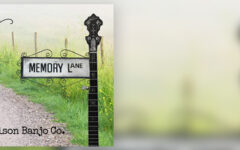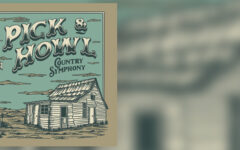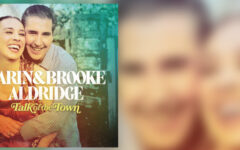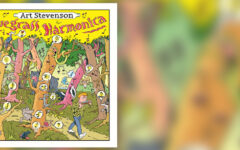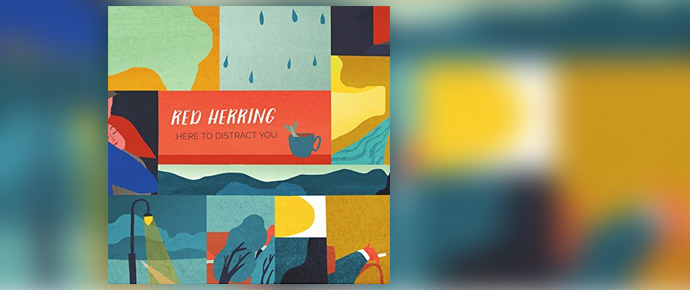
On their website, Rotterdam-based Red Herring describe their music as a mixture of “folk roots, Americana, murder ballads, love songs, and kickass tunes.” Although the lively mix of tuneful and tasteful melodies found on the group’s latest offering would seem to attest to that combination, it doesn’t necessarily tell the entire story either. The four principals involved — Arthur Deighton (vocals, guitar, mandolin, bouzouki), Joram Peeter (vocals, fiddles, guitar, mandolin, bouzouki), Loes van Schaijk (vocals, double bass, bodhran), and Paul van Vlodrop (banjo, mandolin, vocals) — are not only adept at switching styles at ease, but also adroitly executing each variation in tone and tempo with obvious skill and finesse.
One could credit their versatility to the fact that the musicians multitask with such uncommon frequency, even to the point of overlapping one another’s skills. Indeed there’s not a single song here that doesn’t display that exceptional instrumental prowess overall. While the “kickass” portion of their self-described MO is often negated by mellower or more modest fare, their sweeping take on the traditional British ballad Two Sisters sums up their strengths in a tempered yet emphatic fashion. On the other hand, the agile, upbeat approach applied to Uphill Climb, Whatsapp Doc and Barefoot Nellie suggests a more casual connection, while belying any sense of solitude or sobriety. Indeed, Rather Die Alone, Peeter’s comical discourse on the way musical tastes can upend a relationship, projects a sense that the band doesn’t always take its tomes too seriously.
Ultimately, it all comes back to Red Herring’s ability to vary their template and offer ongoing amusement and enticement. The Beaten Track, seeped in wistful repose, the acapella harmonies of Wedding Dress and the easy stride of A Loved Man’s Lonely Blues, all give reason for pause, proof that fury and frenzy isn’t necessarily needed to make an exacting impression. Indeed, the band’s fondness for variety is a product of the variance in their approach and apparent unwillingness to be confined to any particular genre.
That said, if one was to seek a broad umbrella to encompass their overall intents, bluegrass would certainly suffice, especially as it applies to their reverence for roots music regardless of where it happens to originate. It makes for a seamless blend of styles, and a sensibility that suggests they possess a prowess that’s clearly equal to their purpose.

